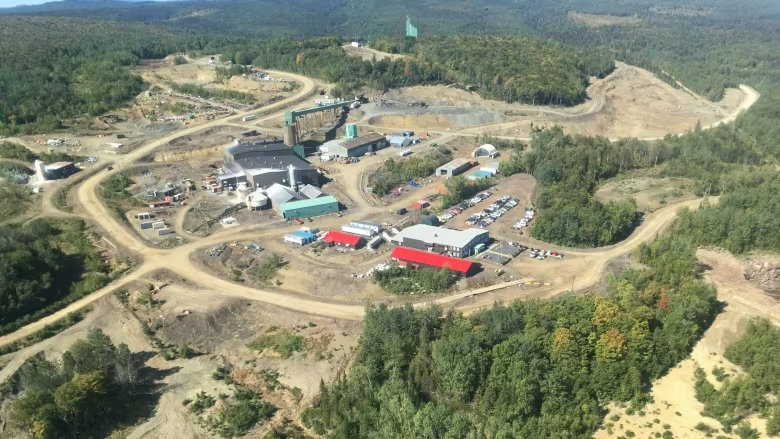Traditional territory of the Wabanaki Peoples/Fredericton — The release of the Intergovernmental Panel on Climate Change synthesis report and summary for policymakers is a stark reminder that governments need to invest in cutting pollution and protecting people and ecosystems. The provincial budget, coming tomorrow (March 21) is an opportunity to do just that in New Brunswick. The Conservation Council wants to see provincial investments aimed at protecting the vulnerable (household retrofits and action on radon), protecting our water (clean up contaminated sites and upgrade wastewater treatment plants to deal with PFAS, and planning for the future (no shale gas development in favour of renewable energy).
“The provincial budget indicates provincial priorities through its planned spending. We need to invest in priorities that make peoples’ lives more affordable, and that includes investments to ensure we use less energy, but also environmental protection and clean up,” says Dr. Louise Comeau, co-interim executive director.
Protect the vulnerable, increase affordability
Low-to-moderate income household retrofits
The Conservation Council expects the provincial budget to commit at least $80-million a year over the next five years to increasing funding to low-to-moderate income household energy efficiency retrofits. The NB Power Enhanced Energy Savings Program (EESP) provides a free audit, insulation and heat pump to households with annual incomes of $70,000 or less. There are currently 13,000 households on the waitlist for this program. The target investment, given available funding, is 3,000 electric and 700 oil-heated homes per year. According to NB Power CEO, Lori Clark speaking on Jan. 23 to the Public Accounts Committee, there are 40,000 households meeting the utility’s income criteria. At the current rate of home retrofits under the Enhanced Energy Savings Program, it will take about 10 years to reach all 40,000 eligible homes. The NB Power program, however, does not begin to meet the affordability needs in the province. According to the Canadian Urban Sustainability Practitioners (CUSP), there are more than 110,000 households in New Brunswick spending an average six per cent of after-tax income on energy. At the current rate of retrofits, it will take 31 years to reach all households currently dealing with some level of energy affordability.
Low-income household radon testing
The Conservation Council expects the provincial budget to provide the funding needed to ensure all public housing units are audited for radon gas and repaired where needed. Radon gas, known as the invisible killer, is a colourless and odourless radioactive gas, classified as a carcinogen by the International Agency for Research on Cancer (IARC). It is formed by the radioactive decay of uranium. The 2021 Auditor General report noted the presence of the carcinogenic radon as a concern in public housing. The Conservation Council recently demanded action for the people finding radon in their homes in uranium exploration hotspots.
Protect our water
Contaminated sites
The Conservation Council expects to see action on contaminated sites in the provincial budget, including funding to update engineering studies, clean up existing sites, and limit taxpayer liability through reform in line with Auditor General recommendations. The province is putting people, flora and fauna at risk from abandoned mining tailings ponds because it is not effectively regulating mining companies and, worse, is not accurately recording contaminant site liabilities, including the Caribou Mine. The 2022 AG report indicated that in 2021-2022, the province recorded a liability for contaminated sites of $50.8 million from 75 sites. The Caribou Mine alone, based on a 2021 company statement, carries a remediation liability of at least $49 million ($36.7 million USD), with the province responsible for at least two-thirds of this cost (e.g., for at least $32.3 million). The AG recommended engineering studies be updated every five years. If New Brunswick is going to develop new mines to meet demands for electrification, we need a mining strategy based on best practice and a circular economy.
Wastewater treatment upgrades to reduce exposure to per- and polyfluoroalkyl substances (PFAS)
The Conservation Council expects the provincial budget to allocate resources to assess and manage ‘forever chemicals’ in drinking water (and soil). This should include developing a capital plan to meet Health Canada’s objective of 30 nanograms/litre for the sum of total per- and polyfluoroalkyl substances (PFAS) detected in drinking water. Human and ecosystem health is threatened by exposure to PFAS, chemicals used as surfactants, lubricants and repellents (for dirt, water and grease). According to Health Canada, PFAS can also be found in products as diverse as firefighting foams, textiles (for example, carpets, furniture and clothing), cosmetics and food packaging materials. Health Canada is proposing a water quality objective that would severely limit the amount of PFAS permitted in water, potentially requiring upgrades to water treatment facilities in New Brunswick.
Plan for the future, not a fossil fuel past
Say no to shale gas
The Conservation Council expects the provincial budget to lay out the government’s plan for developing a clean electricity strategy based on a comprehensive public engagement process. Repsol SA recently announced it would not develop an export liquefied natural gas facility at the Saint John LNG site, a decision welcomed by the Conservation Council as methane gas is not a climate solution given it is a fossil fuel contributing to climate change. The premier’s response to Repsol’s decision was to suggest that shale gas could be used in New Brunswick to transition the Belledune and Coleson Cove generating stations off coal and oil. Lifting the shale gas moratorium to produce gas and risk water and community health is not a solution to cleaning up our electricity system.
To arrange an interview, contact:
Jon MacNeill, Conservation Council of New Brunswick | 506-238-3539 |jon.macneill@conservationcouncil.ca

